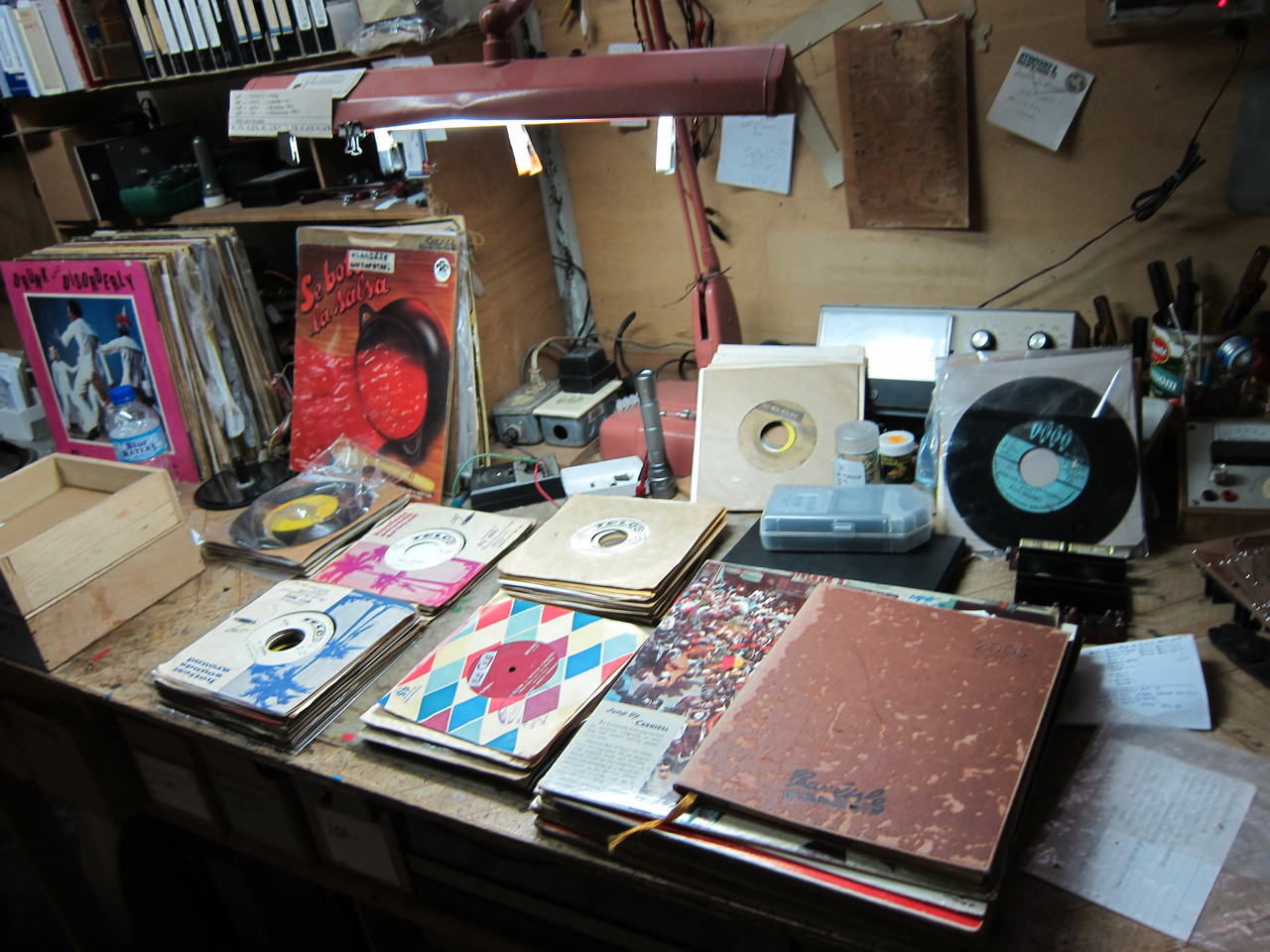Written by:
Gerd De Wilde (The Wild)
Share article:
What about Trinidad?
„I don’t know, what about it?” I answered.
I was planning my yearly digging-trip-dressed-up-as-holiday. For years I have wanted to go to Madagascar. Amazing unique nature, some strange music I been wanting to know more about and the fact that island had had a proper vinyl pressing plant and somebody had unearthed a massive stock of utterly rare 78s had spawned my interest in the African island even more. Trinidad, on the other hand, had never really captivated my interest, musically or otherwise.
Some quick searches taught me that it was tiny, tropical and just off the coast of Venezuela. Besides calypso I didn’t have a clue what to expect of it musically. Edo and I discussed the pros and cons of both islands and in the end I figured it might even be more adventurous to go somewhere where I didn’t have a clue at all about how it would turn out. Tickets were bought: „hey ho let’s go”!
After some inquiring it turned out, some people we knew had been there. Marthy Couman, a Dutch digger, seller and connoisseur of all kinds of outsider rock, oriental music and garage had been there a decade before for a day or two and came back with a very pleasant amount of records, his conclusion: records all over the place but don’t bother to find any reggae or ska. Ziad aka Blue Flamingo, another Dutchmen, 78 collector and compiler had been there to try to find calypso 78s and his entire trip had provided him with only a handful. Mixed feelings.
As a preparation I tried to find some interesting literature about the island or it’s (musical) history. It turned out there was an absolute abundance of academic publications to be found about Trinidad and it’s musical history. As part of the Caribbean Trinidad has a rich, complex and unique past. A true melting pot of cultures, influences and a stronghold for post colonial thinking. Eric Williams’ „From Columbus To Casto - A history of the Caribbean” and „Music from behind the Bridge” by Shannon Dudley (about steel band culture) provided an interesting mental preparation before plunging into the Caribbean.



